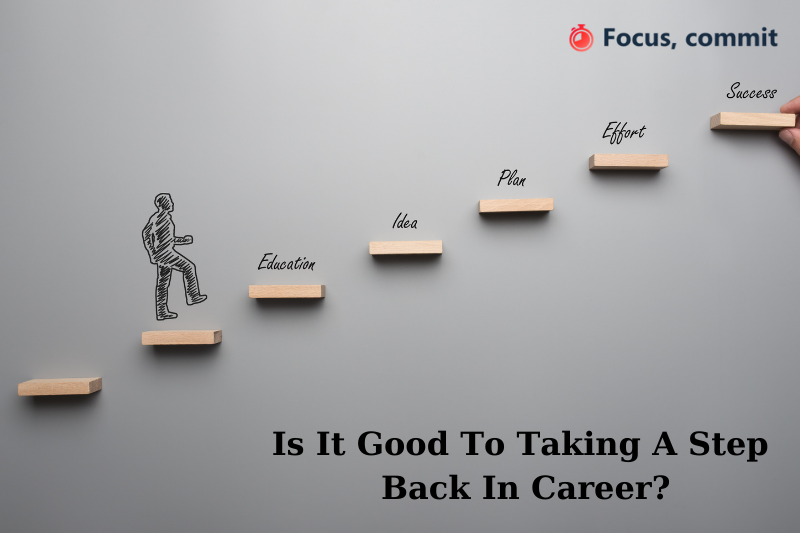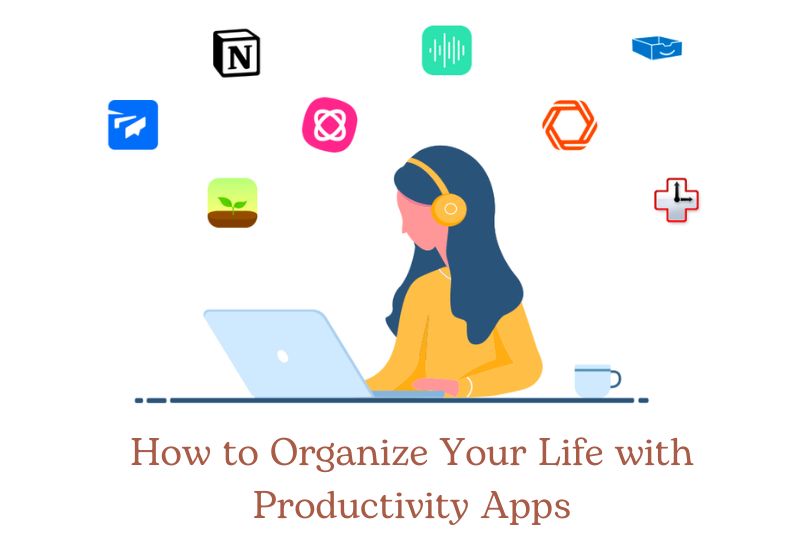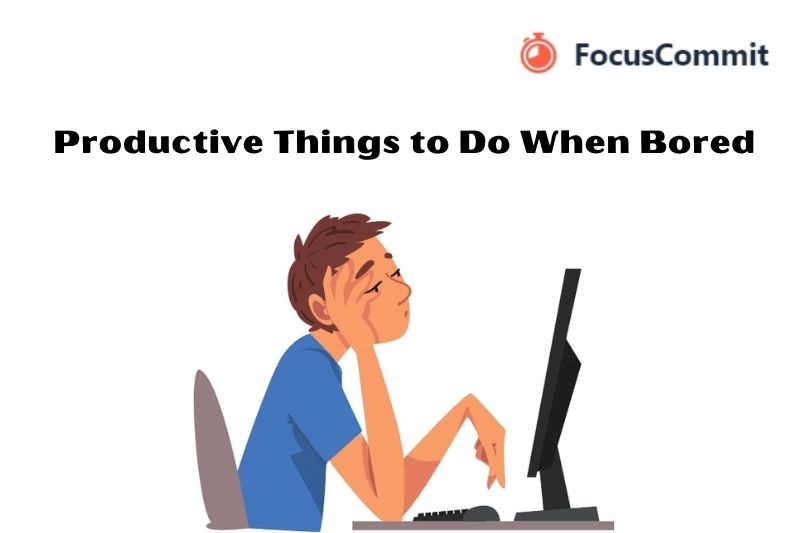Determining whether taking a step back in your career is a wise choice isn’t a one-size-fits-all decision. Some people find that taking a break allows them to reevaluate their goals and figure out what they really want out of their professional lives. Others may find that taking a step back allows them to focus on their personal lives for a while and recharge their batteries.
However, it’s important to consider your options carefully before jumping to conclusions. Below, Focuscommit offers some advice to help you face the possibility of career failure.
How do you deal with career setbacks?
1. Fail to Face the Facts
Don’t try and hide the truth or blame others. People will find out about the situation in today’s connected world.
This can be not easy, however. You might ask a friend or colleague to help you look at the situation objectively and without bias.
2. Take a look at the experience
Learn from your experience what you can take away from it. There is always something to be learned from every setback. Anyone who attempts to accomplish something difficult will face setbacks. Employers want to see that you have learned from your setbacks and are ready for the next step. Investors also want to see this.
John Arthur, the author of Manage Your New Career, suggests that setbacks provide feedback. Please don’t dwell on the fact that you didn’t get what you wanted, but rather look at the lessons it taught. Consider what feedback you might get if your application is rejected for a promotion. Perhaps you’re not on the right career path for your skills or need to be stronger in a particular area.
3. Keep your eyes on the positive
If you should focus on the positive and things you can control. For example:
- Are you looking for a quick commute?
- A coworker who has become a friend?
- It was a fun project, even though it was from the past.
- Are you looking for health insurance or paid vacation?
- What makes you more marketable is the experience that you have gained.
Should focus on the things you can control. For example, a marketing plan that will help your career move forward. Start assembling the pieces. Update your resume and LinkedIn profile. You can find out which resources are free through your community colleagues, career ministry, professional associations, and the schools where you received your degree.
Read also: Why I Cant Focus At Work? How To Hack The Brain To Focus More?
4. Develop a growth mindset

Rafael – President and CEO of Rehab U Practice Solutions, recommends cultivating a “growth mindset”, a way of thinking that focuses on possibilities and positivity rather than a personal failure. He says, “You experience loss. Instead of seeing it as a learning opportunity or a minor speed bump, you equate that failure to your worth/value as a worker/person/employee, etc. This creates a negative feedback loop. Your brain will tell you that if something does not go well, it’s because you’re not good enough, don’t know this, don’t have this skill, etc. You end up on a path filled with self-fulfilling prophecies, and you are near the end of your mediocre career, wondering where all of your time went.
Salazar says cultivating a growth mindset is the best way to stop or combat this slide toward mediocrity. Seeing every obstacle, challenge, and difficult situation as a step on a journey that will take you forward and upwards is essential. It will help your brain take each setback and ask yourself, “What can I learn?” or “How can this improve me?” This mindset will make it easier to bounce back from setbacks.
5. Reach out to Your Network
Matuson recalls being laid off from her dream job after calling everyone she knew, even her former boss, who hired me at the company where Matuson worked. I was offered a temporary job, which turned into a full-time position. Nine months later, she died, and I became her replacement.
Maruska agrees with Maruska that it is a smart move to tap into your network after a career setback. He suggests that those who have suffered a career setback should seek out the support of their network members to offer a third-party view of their abilities. So that your network can help you move forward, make sure they know what you’ve learned.
6. Avoid Negative Influences
It can be easy for people to drag you into a pity party when career setbacks happen. Don’t be a disgruntled employee or complain to anyone at work. This not only damages relationships, but it can also lead to you being labeled negative. If this image is attached to your professional brand, it could haunt you.
7. Keep Healthy
After a career setback, it may not be something you think about. Make sure to include stress-relieving activities in your daily life. Even if you can only walk around the building, go out for lunch. You will feel better if you get some fresh air and a change of scenery. You can do wrist and ankle circles, leg lifts, and head rolls to keep tension in check.
“I have had bumps in the road. Most people do. You can get back on your feet with the right attitude and discipline.

Is It Good To Take a Step Back In Career?
If you stay with an organization that doesn’t offer career advancement, your career will suffer. If you feel you have exhausted all your opportunities for promotion and have been begging the management to let you know, you are expected to look elsewhere.
To get ahead, you may have to take one step back before you can take two, regardless of whether your career is in the same area or changing careers.
Psychological factors significantly cause negative emotions when you step back from your career. You will have fewer responsibilities than your previous job and likely earn less.
However, earning less right now can help you get to the top faster, primarily if your company is known for its fast track to management.
Consider whether the job offers a high level of long-term potential in an organization with a good reputation in your industry. This could help you to improve your career prospects.
It would help if you considered this position’s opportunities to learn new skills, experience a different working environment, and practice your work ethic. You can use the knowledge and skills you have gained throughout your career to be an asset to your coworkers and managers in your new role.
While the traditional route to the top was to work your way up within the same organization, only a small percentage of executives today have followed this path for their careers.
Career experts say people from diverse backgrounds will hold senior positions in organizations.
5 Ways to Explain a Career Step Back

1. This Job is Right for You
While title and salary are important, they are not the only things people consider when choosing a job. Consider how the position can meet other needs. Perhaps you are passionate about the company’s mission or want to be part of the startup’s growth. Maybe you have been a manager, but it is not the right job for you.
No matter what reason you have, tell the employer why you are interested in the job. Make it clear that your excitement about the opportunity is evident.
2. Keep your eyes on the positives
Employers understand that productivity and engagement go hand in hand, and employees who become bored with their jobs often don’t perform at their best.
Be prepared to answer questions about why you want to take a step back in the cover letter or during an interview. It might be necessary to address concerns such as “Will you get bored?” or “Are you concerned that this is a step too far?”
Please describe why you are excited about the job and how it fits your career goals. Discuss what you hope to learn and the challenges you look forward to.
3. Explain the Why
Employers might be concerned that a candidate who isn’t qualified enough will leave the company when a better opportunity presents itself. Be prepared to address these concerns. Discuss why you intend to stay in the job for the long term.
Continue to reiterate your desire to learn as much about the company and the job as possible. You can also explain why you prefer a side-to-side career and are not interested in climbing the ladder. You can point to your work history if you are a loyal employee.
4. Connect the Dots
You might think about how your experience and background have helped you get to this job. Maybe you were a manager for a while and needed to return to doing tasks, not overseeing others. Perhaps you have taken time off to care for your family or pursue a hobby and feel more at ease re-entering work at this level despite having a higher education. Employers can appreciate candidates who are confident in themselves.
5. Talk about your goals
Be clear about your career goals and how this job will assist you in achieving them. If you are a career changer, you will likely need to start from the bottom and work your way up. Be prepared to explain why this job is essential.
You can also explain to them that you don’t have any interest in managing or directing and that taking a step back (or forward) fits perfectly with your vision of your professional future.




